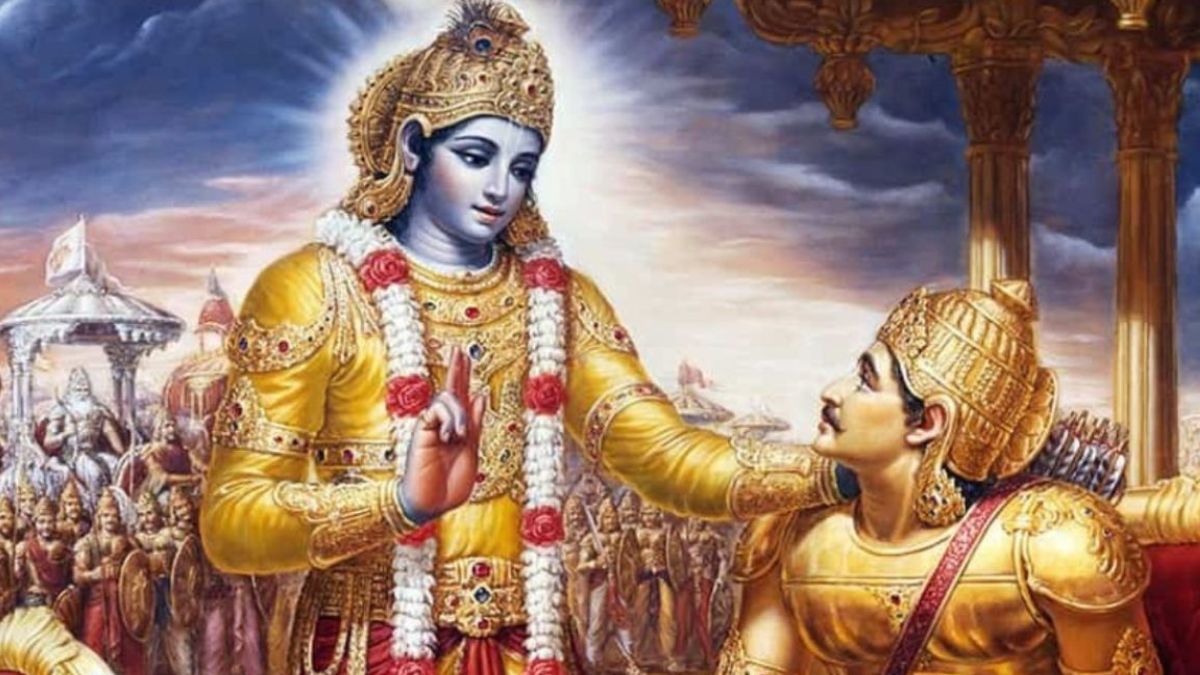- By Kashish Rai
- Sat, 14 Jun 2025 04:29 PM (IST)
- Source:JND
Bhagavad Gita Teachings: Death is viewed as a transition rather than an end in the Bhagavad Gita, which provides a profound perspective on the subject. The soul is eternal and changes physical forms like clothes. Through karma, our deeds in this life determine our future, and our last thoughts before passing away affect where our souls go after death. By letting go of worldly ties and realising the eternal nature of the soul, the Gita helps us get over our fear of dying. We can find true freedom and peace by achieving moksha or liberation from the cycle of death and rebirth through a life of chastity and devotion.
Check out the valuable teachings from the Bhagavad Gita on life and health and know why Lord Krishna asserts in the Bhagavad Gita that death is not the end of one’s being.
Bhagavad Gita Teachings On Life And Death
- According to the Bhagavad Gita, the body is transient and subject to change, but the soul, or Atman, is eternal and unbreakable. According to Lord Krishna, death is a transition rather than the end, during which the soul passes from one body to another, much like when you shed old clothes and put on new ones. Karma has an impact on this process; the soul carries its karmic impressions from one life to the next, influencing its subsequent existence.
- The Bhagavad Gita also says that our physical, mental and spiritual states are impacted by the karmic impressions that are created by our deeds, thoughts, and intentions. Krishna highlights the significance of intentions, saying that the calibre of our intentions is more important than the actual actions we take. Karma, also known as the law of cause and effect, is a natural law that affects everyone equally and shapes our futures.
- Our last thoughts before passing away, which represent our mental patterns throughout life, have a big impact on how we live in the afterlife. To guarantee a smooth transition, Krishna counsels Arjuna to concentrate on divine consciousness, think of him constantly, and cultivate devotion resolutely. One can consciously guide their journey beyond physical existence by doing this.

Lord Krishna offers profound guidance to warrior prince Arjuna on various matters like victory, defeat, life, death, moral values, etc., while reciting the Bhagavad Gita on the battlefield of Kurukshetra. (Image Source: International Society For Krishna Consciousness - ISKCON)
- The Bhagavad Gita also discusses the ultimate objective of reaching moksha, or liberation, and the cycle of birth and death, or samsara. Three primary spiritual disciplines can help achieve this: wisdom and self-realisation (Jnana Yoga), selfless action (Karma Yoga), and devotion to God (Bhakti Yoga). One can strive for moksha and escape the cycle of death and rebirth by comprehending the immortality of the soul and the law of karma.
- The Bhagavad Gita offers helpful advice on how to lead a meaningful life and deal with death fearlessly. People can develop spiritual strength, detachment, and devotion by comprehending the soul's journey and the role of karma. This will enable them to transcend the cycle of birth and death and achieve liberation.
Why Death Is Not The End According To Lord Krishna? Know What He Says In Shrimad Bhagavad Gita
According to the Bhagavad Gita, death is merely a transition to a new life rather than the end. According to Krishna, the cycles of birth and death are interconnected, with rebirth inevitable for the deceased and death certain for the born. This viewpoint enables us to comprehend that life never ends and that we are not limited to the material world.
ALSO READ: What The Bhagavad Gita Teaches Us About Love; Check Top 7 Insights
We can overcome our fear of death and discover the greater meaning of life by acknowledging the eternal nature of the soul. Krishna's teachings demonstrate that life is eternal and that our essence never perishes. This knowledge can help us grow spiritually by enabling us to see beyond the material world and discover significance in the soul's eternal nature. We can live more purposefully and approach death with more understanding and serenity if we embrace this wisdom.

